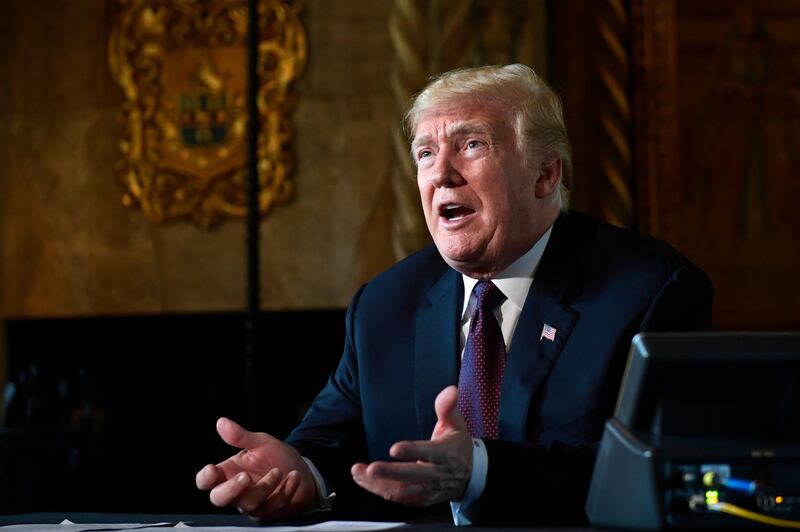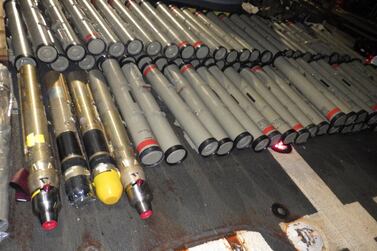The US Senate on Thursday passed the Iran War Powers resolution that would curb President Donald Trump’s ability to use military force against Iran without congressional approval.
The bill passed with a majority of 55 votes. Eight Republicans joined the Democrats in voting in favour, while 45 opposed.
The bill, authored by the Democratic Senator for Virginia, Tim Kaine, "directs the President to terminate the use of the United States Armed Forces for hostilities against Iran or any part of its government or military, unless explicitly authorised by a declaration of war or specific authorisation".
But it stresses that the text does not "prevent the United States from defending itself from imminent attack".
Mr Kaine said his legislative victory was “a strong bipartisan message from the Senate that we will uphold our constitutional duty to deliberate and vote before sending our troops into harm’s way".
This is a strong bipartisan message from the Senate that we will uphold our constitutional duty to deliberate and vote before sending our troops into harm’s way. https://t.co/oah5xRqNp4
— Tim Kaine (@timkaine) February 13, 2020
Mr Trump on Wednesday night urged the Senate to vote against it against it.
“It is very important for our country’s security that the United States Senate not vote for the Iran War Powers Resolution,” he tweeted.
With the bill passed and on its way to the President’s desk, Mr Trump will most probably veto it.
US-Iran hostility has increased in the past two months after a rocket attack on a base hosting American troops in Iraq in December, which killed one US contractor.
In response, the Trump administration carried out air strikes against pro-Iran militias in Iraq, then assassinated Iranian general Qassem Suleimani and a top militia leader.
At the time of the Senate vote, AFP reported that rockets hit an Iraqi base that hosts US troops in Kirkuk.
Iraqi security officials identified it as the “K1 base”, the same one that was hit in December. No casualties were reported.
Meanwhile, the US Navy announced on Thursday that its forces in the Arabian Sea seized a dhow carrying Iranian weapons to the Houthis in Yemen.
The heightened tension comes as US Secretary of State Mike Pompeo travels to the region and will visit Saudi Arabia.
A US senior official said that Iran’s behaviour and Yemen would top the agenda.







